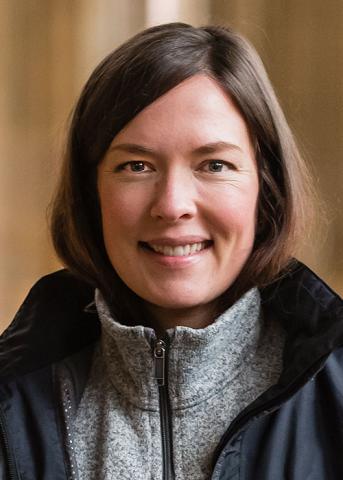Why did you decide to go back to school to get your bachelors?
I went to a couple of different colleges when I was younger and I failed a lot. I didn’t have a real goal or an educational role model. Now that I have kids of my own – two daughters who are 3 and 6 – it’s really important to me that I become a role model for them.
What did it feel like to get in to the UW?
I was so excited! I worked hard on my application essay, because I wanted to make it clear that poor grades in the past were not a reflection of my current aspirations. I just found out I have a 3.9 GPA, and that feels so good after leaving college the way I did when I was younger.
Why nutrition?
I’ve always loved learning about nutrition. I grew up in a health-minded household. My mom used to make me eat dirt for “good” bacteria. We grew our own avocados. I wasn’t allowed to eat sugar. Even as a child, I was always aware that I felt better when I ate more vegetables. From there, I became fascinated with the link between nutrition and health.
I was a nutrition major at another college 20 years ago and it’s interesting how diet trends and the food landscape have changed.
What are your professional goals?
I’m looking forward to continuing my education and I plan to apply for a master’s degree in occupational therapy here at the UW.
What inspired that?
When my second daughter was born, she was premature and needed a lot of medical assistance. We were at the UW Medical Center’s Neonatal Care Unit and I met a pediatric occupational therapist (OT) that helped to manage her care. This OT was so compassionate, knowledgeable and confident, at a time that was very scary for me. I remember thinking: I want to do that. I want to help people like that.
What interests you most about nutrition?
I like how nutrition connects to other complex public health issues, like environmental concerns, food sustainability and diet-related disease. I’m also interested in maternal and child nutrition, particularly the impacts of nutrition during critical stages of development can affect future health outcomes.
How do your studies in nutrition complement your career aspirations?
I believe in the therapeutic power of food and I think nutrition is a key component to rehabilitation and healing. I hope to be able to use my nutrition background as a complement to a holistic approach to occupational therapy.
What do you think about public health?
I believe public health starts with education and communication. In order to change current systems, we need to find better ways in sharing education and understanding each other. Also, public health needs to be integrated with our food systems and environmental goals.
How do you feel about your time at the UW so far?
Everyone is so friendly. When I was first accepted, I thought, I’m going to get in, do the work, and get out. But, since I’ve been here, I've made many friends and I feel like I’m part of a community. I never felt like that at other schools.
In what ways are you engaging in the UW community?
One thing that helped me to be successful, and become less self-conscious about being an older student, was talking to my professors. All of the professors I’ve had have been supportive and committed to creating an enriching environment.
Any advice for prospective students?
Reach out and make connections with others. Tell your professors when you’re struggling and don’t be afraid to ask for help.
What sorts of things do you like to do in your free time?
I spend a lot of time with my family. We have a garden, where we grow cherry tomatoes, spinach, lettuce and lots of herbs. We also recently inherited six chickens from our neighbor, so we’re learning how to keep them happy and healthy. In my free time, I love watching documentaries and reading books.
If you're interested in studying nutrition as a undergraduate, visit the Nutritional Sciences Program website.

